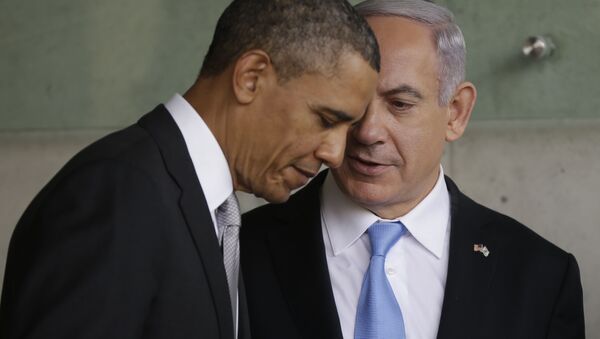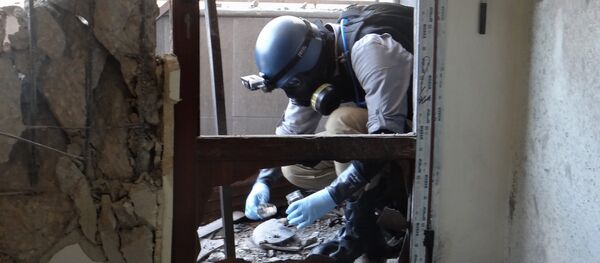Israeli Prime Minister Benjamin Netanyahu backed then-US President Barack Obama’s 2013 decision to seek congressional authorization before striking Syria in the wake of a sarin gas attack, which h, according to mainstream media, was purportedly ordered by Syrian President Bashar Assad, Obama’s former senior advisor Ben Rhodes relates in his forthcoming book.
According to an excerpt from the book, titled “The World as It Is,” penned by President Obama’s onetime deputy national security advisor for strategic communications, Obama was hesitant to order a unilateral attack on Syria despite his earlier statement that the use of chemical weapons in Syria would be a "red line" for the United States.
According to Rhodes, Benjamin Netanyahu then gave Obama his full support, arguing that "Your decision [to seek congressional support for striking] was right, and history will be kinder than public opinion."
Meanwhile, pro-Israel groups in the US and the Saudi government were lobbying lawmakers to authorize unilateral strikes.
Obama still requested congressional authorization, but the vote never happened, as Washington welcomed a Russian plan to place thousands of tons of Syrian chemical weapons under international control, opening up the first real chance for a political settlement to the crisis.
"I realized then that [Obama] was comfortable with either outcome. If we won authorization, he’d be in a strong position to act in Syria. If we didn’t, then we would potentially end the cycle of American wars of regime change in the Middle East," Ben Rhodes wrote, summarizing Barack Obama’s position on the matter.
The reports of the use of chemical weapons in the suburbs in the Ghouta region on the outskirts Damascus appeared in the pro-opposition media on August 21, 2013, coinciding with the arrival of UN investigators to the Syrian capital.
READ MORE: How US Used Chemical Attacks to Justify Its Invasion of Syria Since 2013
The Islamist rebels claimed that over a 1,000 people, including many children, had been killed in the attack, with the government saying that the accusations were fabricated in order to cover up the opposition’s battle losses and undermine the work of the UN mission.
Materials implicating the forces of Syrian President Bashar Assad in chemical weapons use near Damascus were prepared prior to the alleged incident, the Russian Foreign ministry Ministry said.



